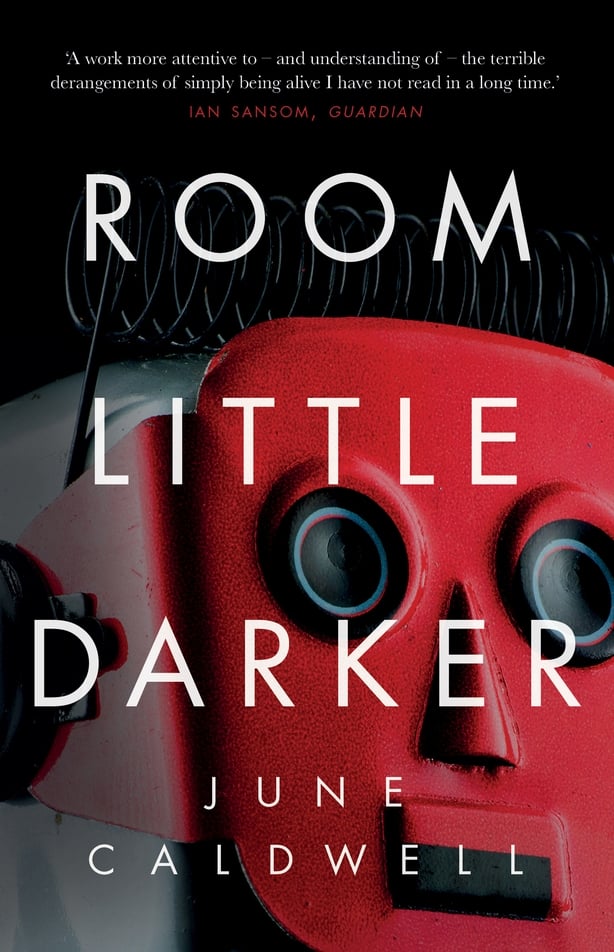June Caldwell's stories, Room Little Darker excite, rouse, move and tickle the funny bone.
Told almost always in the first person, Caldwell’s narrators range across ages, classes of society and gender; grouping together a unique set of tales of the unexpected.
There are stories exploring the experience of an unborn foetus in the womb and its relationship with its mother, a young woman looking for sexual excitement and deviousness in a world of S&M, a junkie searching desperately for his next hit, or even the story of a grown man living in a tree.
Caldwell’s stories are all about perspective and the ways in which perspective can inexplicably affect a person’s understanding of their own reality. A man living with his best friend in a tree, who also just happens to be the tree, does not necessarily read as unbelievable. Neither does a futuristic Ireland where pleasure ‘Boybots’ exist as a means of curbing the urges of sexual predators.

Notwithstanding the bizarre subject matter of these short stories, they still stem from concrete and current issues rooted in contemporary Ireland. The Eighth Amendment, mental health, drug and sexual awareness, domestic and psychological abuse, cancer, contraception and even Donald Trump are all touched upon in Caldwell’s quirky and concise snapshots of life.
Unlike anything you may have read before, Caldwell’s writing is a breath of fresh air. One may read these tales as dark or harrowing and disturbing, which perhaps in parts they are. At the same time, they are hilariously funny and clever, deceptively zany yet artfully and carefully cultivated. Akin to Irish films and screenplays such as Adam and Paul, Spin the Bottle or Martin McDonagh’s In Bruges, they all carry that same unsettling buzz and black humour.
Caldwell’s collection (originally published by New Island Books) is not for the faint-hearted. Yet, at the same time, absolutely everybody must read them. You need not take anything profound from them if you don't want to - just see what happens when you probe your brain's borders with the scope of Caldwell’s characters.







